The visible tip of the iceberg called the SBU is more often associated with scandals and a lack of professionalism than with facts of effective interference in processes that threaten Ukraine’s national security. The most striking part is that the Ukrainian Security Service seems to see no absolutely no threats or unfriendliness from the Kremlin. Not only does it turn a blind eye to its Russian colleagues’ anti-state activity on Ukrainian territory, but sometimes even backs up Moscow’s spin doctors. Moreover, the SBU allows Russia’s “secret agents” to feel free and relaxed in Ukraine – even kidnap people on its territory. Meanwhile, the SBU is searching for threats to national security among opposition members, human rights and other activists, who, for the most part, stand for national interests. This signals that the current SBU is an offspring of the KGB rather than the independent security service of a sovereign state. Moreover, their actions – or rather inactivity – give the impression that the SBU is playing along with Russia and its neo-imperialistic strategy. Or is it the lack of professionalism that makes the SBU overlook these intentions? It appears that Ukraine would now have a completely different security service if it had started to build the SBU from scratch rather than nbase it on the republican branch of the KGB twenty years ago.
READ ALSO: Armed and Unpunished
SUSPICIOUSLY BIASED
2003
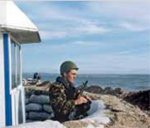
Russia started building a dam to annex the Tuzla Spit, a Ukrainian island near Crimea, to its territory. As a result, it could have had territorial claims to Ukraine. The SBU failed to take any measures to prevent the provocation.
2004
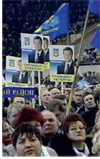
On 26 November 2004, the Luhansk Oblast Council passed a decision to create the South-Eastern Ukrainian Autonomous Republic. On 28 November, an All-Ukrainian Session of MPs and Local Council Deputies took place in Severodonetsk, Luhansk Oblast. The members openly spoke of separating south-eastern regions from Ukraine. The SBU did nothing to prevent this or hold the separatists liable.
2010
In September, the then SBU Chief Valeriy Khoroshkovsky admitted that the SBU “is closer to the Russian FSB and Belarusian KGB… Many of our staff graduated from special academies in Moscow, Minsk and Kyiv. Most are graduates of the same training centres. We use similar mechanisms, instruments and methods. Western special services have different training, as you can well understand.”
READ ALSO: Firsthand Experience of the KGB’s “Refinement”
2010–2013
The SBU took no measures against Russian politicians and their pro-Kremlin colleagues in Ukraine who on many occasions have made public statements with claims regarding Ukraine’s territorial integrity, independence, and stability in a number of regions. It did not react to the Rusyn movement in Transcarpathia, actively promoted by the priests of the Moscow Patriarchate of Ukrainian Orthodox Church.
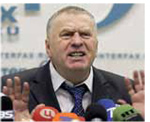
In 2010, the SBU lifted the ban on the entry to Ukraine of Yuriy Luzhkov and other notorious Russian figures. After Luzhkov’s persona non grata status was cancelled, he once again made a series of statements with territorial claims. In early 2013, the Russian parliament’s Vice Speaker Vladimir Zhirinovsky visited Kyiv. The SBU did not react to his statement in August 2011 that “Ukraine will become part of Russia as a ‘federal region’”. In Ukraine, Zhirinovsky said that he “recommended that Ukraine switches to Moscow time. Make Russian the only official language. Then everything will be good.” No actions were taken in response to his interference in Ukraine’s internal affairs. It is the SBU that initiates bans on such persons entering Ukraine.
2012
The Russian security service kidnapped Russian opposition activist Leonid Razvozzhayev in Kyiv. The SBU says that it knew nothing of a foreign special operation taking place on Ukrainian territory.
The SBU failed to prevent the conclusion of the Agreement on the LNG terminal construction between the Government Agency of Ukraine for Investment and National Project Management and Gas Natural SDG SA of Spain, signed on behalf of the latter by Jordi Sarda Bonvehi. It later emerged that he was a skiing instructor who had not been authorized by the Spanish party. According to one suggested scenario, this could have been a special operation by Russia’s special service as the Kremlin is not interested in the diversification of Ukraine’s fuel supply sources.
READ ALSO: Oleg Kalugin: “Putin Is a Temporary Twist In History”
THE WARS AGAINST THE OPPOSITION AND AVERAGE CITIZENS
2000
The discovery of the Melnychenko tapes revealed that the president’s office had long been bugged.
Information surfaced of the SBU staff’s proactive participation in a campaign to undermine the opposition and the persecution of independent press.
In 2005, Hryhoriy Omelchenko, head of the Georgiy Gongadze murder investigation committee, said that the SBU had launched the Provocateur Operation to investigate the journalist in June 2000. This was based on information that Gongadze had allegedly received materials that could have been transferred abroad, leading to a negative impact on the country’s image.
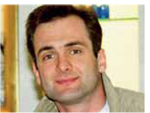
2004
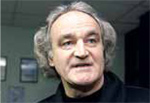
SBU General and foreign intelligence agent Valeriy Kravchenko stated on a Deutsche Welle radio programme that “SBU Chief, Ihor Smeshko and the Head of the General Intelligence Department, Oleh Syniansky, both reporting to Kuchma, instructed their agents to conduct the surveillance of opposition MPs and government members on the ministerial level and higher”. Among other things, he mentioned that he had been instructed to supervise preparations for a forum arranged by Nasha Ukrayina (Our Ukraine), and conduct the surveillance of German reporters investigating the trafficking of organs and children in Kharkiv.
2010
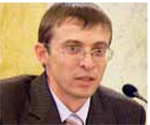
The SBU launched a criminal case against Ruslan Zabilyi, a historian and Director of the Lontsky Street Prison, a national memorial museum dedicated to the victims of occupational regimes. He was charged with “preparing to disclose classified information”.
2010
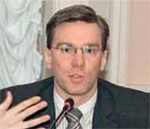
Under SBU instructions, the State Border Guard Service banned Nico Lange, Director of the Konrad Adenauer Foundation Office in Ukraine, from entering Ukraine when he arrived at the airport. Later, the Prosecutor General’s Office announced that the decision had allegedly been based on the violation of the 1974 Declaration on Principles of International Law on Friendly Relations and Cooperation among States in Accordance with the UN Charter that requires foreign citizens not to interfere with the country’s internal affairs.
From 2010
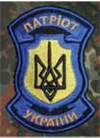
The number of reports on wiretapping, clandestine entry into apartments and other actions restricting the rights of Ukrainians by the SBU soared.
2011
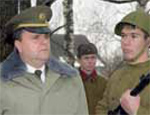
Several activists of the Patriot of Ukraine organization were arrested in Vasylkiv, a town in the Kyiv Oblast, after a leaflet threatening Yanukovych and explosives to blow up the Lenin monument were allegedly found at the home of one of the activists. According to the arrested Patriot leaders, the provocative leaflets had been planted by the SBU.
READ ALSO: The President's Secret Service
2011
Two Czech diplomats were expelled from Ukraine based on SBU materials. According to its data, they had uncovered the intelligence and reconnaissance activities of Defence Attache Colonel Zdenek Kubicek (see photo) and military attaché Major Petra Novotna. The SBU stated that they “spied to collect classified technical and political military information”. Most experts, however, claim that this was done in response to the Czech Republic granting political asylum to Ukrainian opposition politician Bohdan Danylyshyn.
2012
The SBU started persecuting people who bought mobile phones, key chains with mini cameras and watches, accusing them of the purchase, use and sale of special equipment for the unwarranted collection of information.

